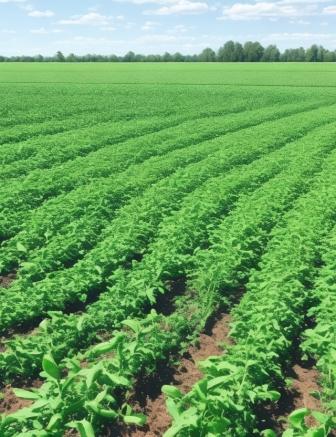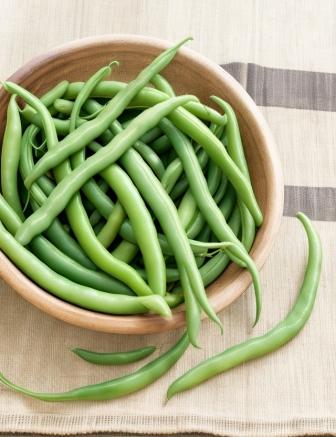Introduction:
One humble superstar that frequently goes undetected in the huge universe of veggies is the green bean. The US has produces 1.5 million metric tons of green beans approximately in one year. Green beans provide a very good health advantages that can improve your wellbeing, even if they may not be as well-known as kale or spinach. So be ready to be shocked as we reveal green beans’ hidden health advantages that you never knew existed!

Table of Contents:
| Health Benefit | Description |
|---|---|
| Nutritional Powerhouse | This vegetable are packed with essential vitamins and minerals, including dietary fiber, vitamin C, and potassium. (Check it) |
| Heart Health Hero | This vegetable contain heart-friendly nutrients, such as flavonoids, that can help reduce the risk of heart disease. (Check it) |
| Digestive Delight | The high fiber content in green beans aids in digestion, promotes regular bowel movements, and supports gut health. (Check it) |
| Blood Sugar Balancer | Green beans have a low glycemic index, making them suitable for maintaining stable blood sugar levels. (Check it) |
| Antioxidant Arsenal | Loaded with antioxidants like flavonoids and vitamin C, this vegetable help combat harmful free radicals in the body. (Check it) |
Nutritional Powerhouse
Although green beans appear to be thin and delicate, don’t be fooled by their appearance. They are incredibly nutrient-dense! Green beans are a good source of nutrition for your body because They are an absolute richest source of vital vitamins and minerals. They are a very good source of fibre, vitamin C, vitamin K, and folate. While fibre helps with digestion, vitamin C boosts the immune system, vitamin K supports bone health, and folate is required for cell growth and function. Among the important minerals green beans has iron, potassium, and manganese.
Heart Health Hero:
The health of your heart should be your primary priority, and this vegetable can help with that. These tiny green marvels include nutrients that are good for the heart, like flavonoids, which have been associated with a lower risk of cardiovascular disorders. By lowering inflammation and enhancing blood flow, flavonoids protect the heart. Green beans’ high fibre content contributes significantly to heart health by assisting in the reduction of cholesterol.
Digestive Delight:
A healthy digestive system is the cornerstone of overall wellbeing, and it can help maintain one. These fiber-rich beans support healthy digestion by encouraging regular bowel movements and avoiding constipation. The bulk that the fibre content gives the stools helps them go through the digestive system more easily. Additionally, green beans function as a prebiotic, feeding the good bacteria in the gut.
Blood Sugar Balancer:
It can be a valuable vegetable for people who are keeping an eye on their blood sugar levels. Because of their low glycemic index, these beans raise blood sugar levels gradually and steadily. They are thus a good option for persons who have diabetes or are at risk of getting it. Green beans can help keep blood sugar levels steady and avoid unexpected surges, giving you a constant flow of energy all day.
Antioxidant Arsenal:
It is loaded with antioxidants to aid you in the continuing battle against dangerous free radicals. Finding free radicals, protecting your body from oxidative stress, and reducing your risk of acquiring chronic diseases like cancer and heart disease are all made possible by antioxidants. Green beans contain flavonoids, carotenoids, and vitamin C as antioxidants.

Conclusion:
It’s time to acknowledge green beans for their outstanding health advantages. this greens vegetable are a true superfood in disguise due to their remarkable nutritional profile, heart-protective qualities, digestive assistance, blood sugar management, and antioxidant prowess. They offer a variety of necessary vitamins, minerals, fibre, and antioxidants, all of which support general health and wellbeing. Let’s honour this unsung hero by include green beans in our meals and enjoying the many health benefits they provide. This delightful and nourishing addition to your diet will be appreciated by your body!
FAQs:
- Are green beans a good source of protein?
- While this beans do contain some protein, they are not considered a significant source of this nutrient. it is primarily known for their fiber content and their rich array of vitamins and minerals. If you’re looking to increase your protein intake, you may want to consider incorporating other protein-rich foods into your diet, such as lean meats, poultry, fish, legumes, and dairy products.
2. Can green beans help with weight loss?
This green vegetable can be a useful addition to a diet plan for losing weight. They are high in fibre and low in calories, which might make you feel fuller for longer and help you consume less calories overall.. The fiber content in green beans also aids in digestion and promotes healthy bowel movements. However, it’s important to remember that weight loss is a complex process that requires a balanced diet and regular physical activity.
3. Are green beans in cans really as nutrient-dense as green beans in season?
Fresh green beans are generally considered to be more nutritious than canned ones. The canning process may result in some loss of certain vitamins and minerals. However, canned green beans can still provide some nutritional benefits. When choosing canned green beans, opt for those labeled as “low sodium” or “no added salt” to reduce your sodium intake. If possible, fresh green beans are a great choice for maximizing their nutritional value.
4. Can green beans be eaten raw?
While this vegetable are often cooked before consumption, they can also be enjoyed raw. Raw green beans have a crisp texture and a slightly sweet taste. They can be a refreshing addition to salads or served as part of a raw vegetable platter. However, keep in mind that cooking it can help enhance their digestibility and make certain nutrients more bioavailable.
5. Can green beans cause allergies?
It is generally well-tolerated and not commonly associated with allergies. However, like any food, some individuals may have sensitivities or allergies to this vegetable. If you experience any adverse reactions, such as itching, swelling, or difficulty breathing after consuming of it, it’s best to consult a healthcare professional to determine if you have an allergy or sensitivity.
6. How should I store green beans to keep them fresh?
To keep it fresh, store them in a plastic bag or airtight container in the refrigerator. They can stay fresh for up to a week, but it’s best to consume them as soon as possible for optimal taste and nutrient content. Avoid washing green beans before storing, as moisture can accelerate spoilage. Wash them just before use.
N.B. Remember, if you have specific dietary concerns or health conditions, it’s always a good idea to consult with a healthcare professional or registered dietitian for personalized advice.



2 thoughts on “Green Beans: Discover 5 Secret Health Benefits of Green Beans You Never Knew!”